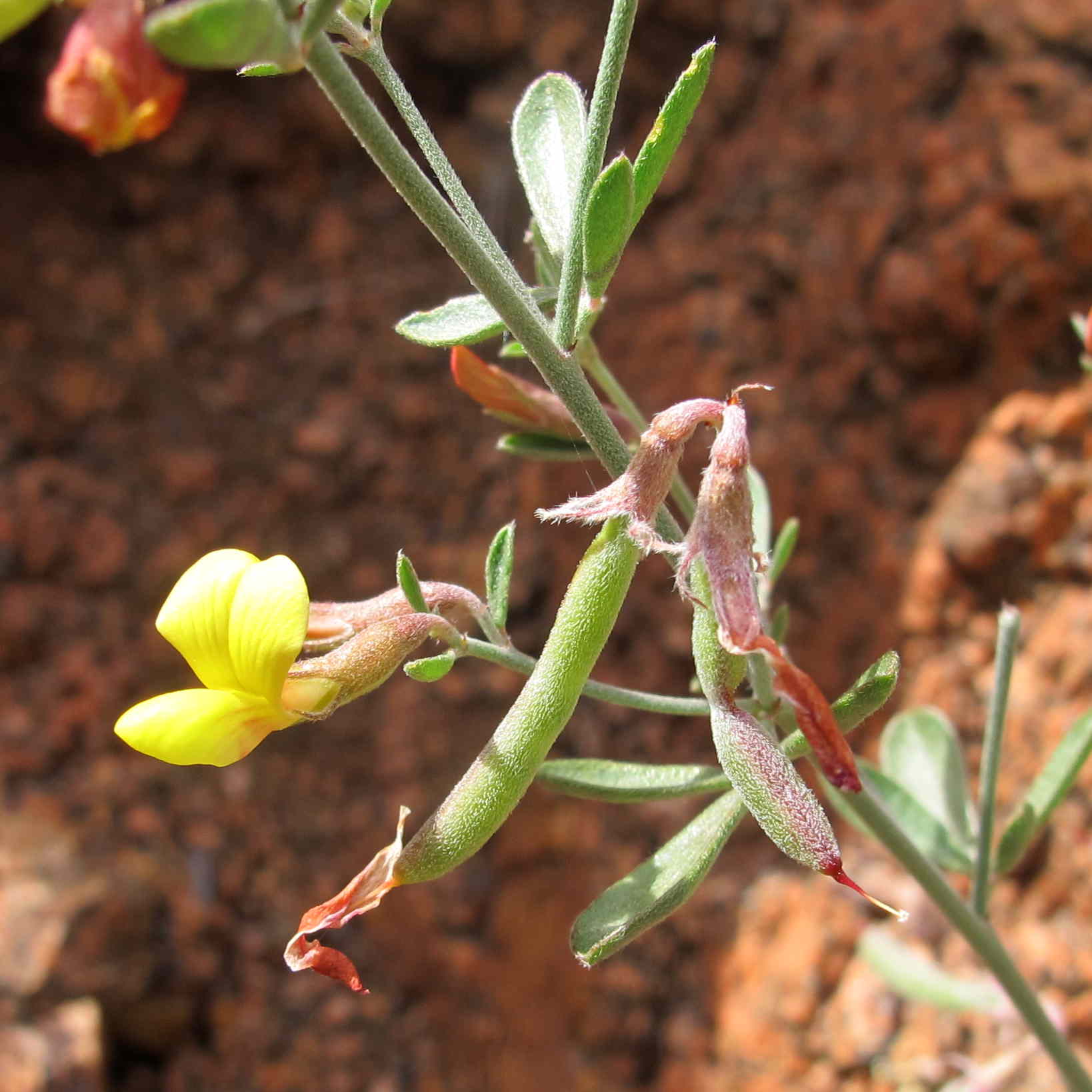Duration: Perennial
Nativity: Native
Lifeform: Forb/Herb
General: Perennial, stems decumbent to prostrate and radiating from an herbaceous caudex, 7-38 cm long.
Leaves: Stipules reduced to glands, leaves short petioled, pinnate, 3-6 foliolate, leaflets oblanceolate to elliptic or oval on lowermost leaves, obtuse to acute, 5-8 mm long to 3 mm wide or wider.
Flowers: On peduncles 0.5-6.5 cm long, 1-2 flowered, bracts 1-3 foliolate, calyx appressed- puberulent, corolla 12-17 mm long, yellow suffused with red, teeth 2.2-8.9 mm long, shorter than the tube.
Fruits: Pods narrowly oblong, 15-28 mm long, 3-4 mm wide, strigose, curved to straight.
Ecology: Found on dry soils and flats from 3,500-5,000 ft (1067-1524 m); flowers March-July.
Distribution: se NV, sw UT, AZ, NM, s TX; south to n MEX.
Notes: Distinguished by being a perennial with many ascending, decumbent or prostrate stems from the base to 40 cm long; mostly appressed hairs throughout the plant; petiolate leaves with 3-5 non-linear leaflets that may appear palmate but are actually pinnate upon close inspection; stalks below inflorescences (peduncles) longer than leaves; and pods <4mm wide. This species is still in a bit of systematic la-la-land. It was originally pegged as an atypical form of L. greenei, but it was off in its description, while at the northern end of the range it was thought to be a hybrid between L. rigidus and L. utahensis, and is told apart by its prostrate-decumbent form from an herbaceous caudex. This seems to now be a stable determination, but probably worth collecting whenever encountered.
Ethnobotany: Unknown, but other close members of the genus were used as food and medicine by various tribes in the southwest US.
Etymology: Acmispon comes from the Greek acme for point or hook, while plebeius might orginate from the Latin plebeius, or of the common people.
Synonyms: Lotus plebeius, numerous others, see Tropicos
Editor: SBuckley 2010, FSCoburn 2015




















